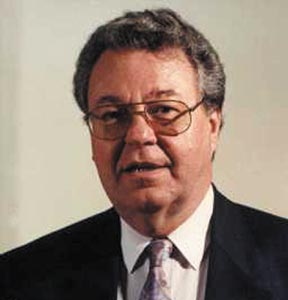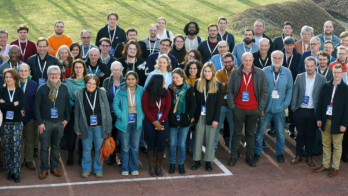
Following the funding shortfall for CERN’s Large Hadron Collider (LHC) that emerged last September, the laboratory established five task-forces to examine ways of redeploying resources to the new accelerator. In parallel, the laboratory’s governing body, Council, established an External Review Committee (ERC) under the chairmanship of Robert Aymar, director of the International Thermonuclear Experimental Reactor. The task-force recommendations were presented to Council in March, and form the basis of a medium-term plan that was submitted to Council for approval in June. Elements of the plan include a cutback in the ongoing research programme (with the Proton Synchrotron and Super Proton Synchrotron accelerators shutting down for all of 2005), redeployment of personnel to the LHC, new accounting and reporting measures and a reduction in accelerator R&D.
The ERC presented its final report to the June meeting of Council. Covering immediate measures to resolve the current problems as well as structural changes for the longer term, the report’s recommendations were accepted by Council as a well balanced set of measures for the future of CERN. Council noted the coherence between the ERC’s recommendations and the management’s medium-term plan, issuing a statement saying that it “believes that the ERC report and the management proposals are an important step towards solving the problems identified and re-establishing an atmosphere of trust”.
In its report, the ERC found CERN to be a laboratory “justifiably proud of its past success and of its worldwide reputation” – success that “speaks loudly for its permanent asset: a competent and dedicated staff”. The committee also found that “the technical basis of the LHC accelerator is sound”, and affirmed that the LHC is “the worldwide priority in high-energy physics: the support to CERN for this objective will not fade out”. However, the ERC did find that the crisis that became apparent last year arose from “serious weaknesses… in cost awareness and control, as well as in contract management and financial reporting”.
The report makes various recommendations to improve financial procedures at CERN, including a transition to “earned value” reporting and to integrated personnel and materials accounting, which are currently treated separately. The ERC also looked at non-LHC related scientific activities at CERN and recommended a significant transfer of staff to the LHC.
CERN’s management is now preparing an action plan and timetable for the detailed implementation of the ERC’s recommendations for presentation to Council this month. The management will also prepare, for Council in December, a proposal for the revision of the 1996 financial framework for the LHC, with the completion of the LHC as the all-out priority in the years to come. This revision will include the cost-to-completion for the LHC project, the resources for the non-LHC programme and a new long-term financial framework and staff plan for the organization.
With a clear convergence between the ERC and CERN management, the June meetings of the laboratory’s Council ended in an atmosphere of renewed confidence in the laboratory’s ability to deliver the LHC, and in its long-term future. This was underlined by Council’s approval of an expenditure figure of SwFr 1217 million (€ 840 million) for 2003 and the release of SwFr 33 million from the 2002 CERN budget that had been frozen pending clarification of LHC funding issues.





